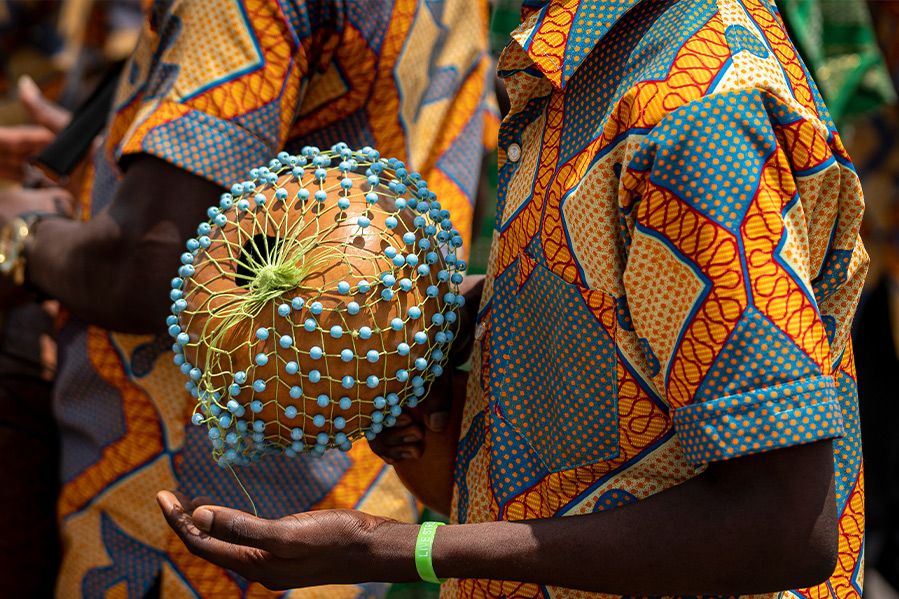
Many festivals and holidays around the world can trace their origins back to agricultural beginnings. People have long celebrated what a bountiful harvest means for survival, and there are countless days of importance centered around specific crops. One perfect example of this is the Asogli Te Za. Also known as the Festival of Yams, this holiday is celebrated in the Volta Region of Ghana. Review these facts to learn more about how this tuber became the central symbol of an annual tradition.
The Origins of the Asogli Te Za
Legend states that the festival began thanks to the work of a single hunter. During a period of great famine in the area, a hunter went out to find food for his people. While in the forests, he came across a single yam. The hunter dug a hole and placed the yam inside in order to hide it from animals and other foragers. When the hunter returned to collect the yam, he discovered that it had germinated and grown significantly in size. After bringing it back to his tribe, the people agreed that cultivating the tuber would end their hunger.
Though celebrated in Ghana, the festival is actually said to have begun in the neighboring Togolese Republic. Historians believe that immigrants from the town of Notsé in Togo came to the Volta Region and brought with them the information needed to cultivate the yam. One important highlight of the Festival of Yams is a pilgrimage to Notsé as a way of honoring the people who helped create the tradition of farming this tuber.
The Traditional Celebration of the Festival of Yams
There are four traditional regions that comprise the Asogli: Akoefe, Ho, Kpenoe, and Takla. During the festival, which is held in September, the people from all these lands gather together and join in celebration. Typically, the members of different regions establish a trade fair during the holiday as a way of showcasing wares and sampling what other areas have to offer. In recent years, the festival has attracted visitors from across West Africa and beyond. This has given tourists the opportunity to try a variety of cuisine that is unique to Ghana.
Over the course of the festival, there are a number of activities that revelers can partake in. Entertainment includes speeches by local leaders and traditional dances underscored by popular folk music from across the Volta Region. There is also a contest to see which local farmer has grown the biggest yam of the season. The yam that weighs the most is declared the winner. The Festival of Yams only takes place for a day, and its ending is marked after sundown with a spectacular display of fireworks.
The Fall and Revival of the Festival
While it was celebrated for countless generations, this festival fell out of popularity in the early 1990s. After almost a decade without any gatherings, it was reinstated in 2004 by Togbe Afede XIV, who serves as the current President of Asogli Traditional Area. The main reason for reviving the festival was to provide education to younger Ghanaians about the importance of the traditions of the Asogli. Since being brought back, the holiday has become one of the most noteworthy of the region.
The Spiritual Side of Yam Festivals
For many Ghanaians, this annual event marks a time to pause and reflect. Since the cultivation of the yam is notoriously difficult, families will often come together to give thanks to their ancestors for taking on the challenges associated with farming this crop. Typically, participants in the festival will not consume any yams until there has been an offering of mashed yams made to the gods and ancestors.
Though eaten all over the world, the yam has a special place in the hearts of the people of Ghana and Togo. By celebrating this tuber as part of the Festival of Yams, the people give thanks to a crop that provided sustenance during a time of famine.


Oh my Gourd! This article is going to be fun 🤪
🦁♥️